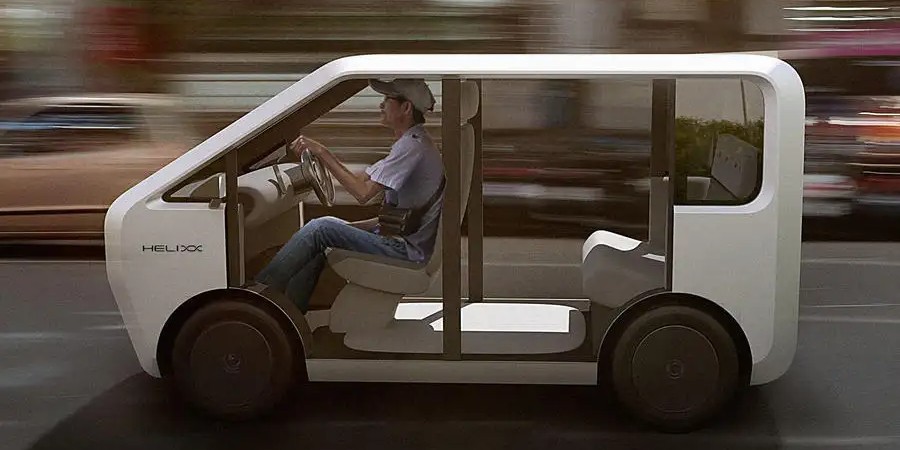UK startup Helixx to offer EVs via franchise
British startup Helixx has unveiled a new concept allowing companies to deploy light electric vehicles in metropolitan areas at low cost. At the core of the approach are franchise agreements tied in with technology licenses.
Upon purchasing such a license, Helixx provides the company with everything needed to assemble their electric vehicles. Helixx then markets the EVs on a subscription basis for $0.25 per hour and is looking to kickstart in Asia.
There will be licenses for four vehicle models: a delivery truck called Cargo, a truck for the construction industry and two variants for passenger transport for ride-sharing and cab fleets. The Tuk has an open body and the Ride is a closed model.
All vehicles are based on a proprietary light vehicle platform. It enables interchangeable batteries with LFP cells. Each module will have a capacity of 2 kWh. The maximum configuration with 12 kWh allows for a range of 200 kilometres. The electric drive is also integrated into the platform, but there is no data on this yet. Since it is to be an L7e vehicle, the power is limited to 15 kW anyway – and the weight to 450 kilograms or 600 kilograms for vehicles for freight transport.
Either way, what makes this vehicle special is the production. Similar to a fast-food franchise that uses standardised kitchens and products, Helixx (in return for the license fee) provides the products. The so-called Helixx Mobility Hub also provides the components, tools, and machines. That means that Helixx does not have to operate any plants itself. It only has to develop the processes and allows the company to operate with a lean and less capital-intensive structure.
McDonald’s franchise as a role model
“Looking at the McDonald’s methodology, we can now get customers to finance or part finance or scale for us,” Steve Pegg, co-founder and CEO of Helixx, says in an interview. “We own the technology. We own the vehicle. We own the supply chain, just like McDonald’s. But we get customers to build the content at a volume that they’re comfortable with.”
Helixx also provides supply chains. “You don’t need to know how to build a vehicle. You don’t need to know how to source,” says Pegg. “All you’ve got to do is follow a process and we are here to help.”
A 5,000-square-meter building is said to be sufficient to set up a Helixx Mobility Hub to build 100,000 vehicles per year. A smaller plant, designed for 30,000 cars annually, is said to get by with only 96 employees.
The company is aiming for a royalty of $20 million, the CEO says. But the total cost will depend on the production capacity the licensee seeks for. A factory for 100,000 vehicles per year should “should cost no more than $100,000 million,” he says.
Helixx says it has successfully tested its production philosophy in a concept hub in Oxfordshire – with the help of Siemens, among others. In the next step, Helixx wants to set up further pilot hubs in the United Kingdom and in Singapore. Singapore should be a good starting point for the company’s future direction. According to Pegg, Helixx will initially focus on the Asia-Pacific region, followed by India, the Middle East, North Africa, and South America.
The concept of using microfactories for electric commercial vehicles instead of large vehicle plants is not entirely new. Arrival, another British startup, wanted to manufacture and offer electric delivery vans, electric buses and later an electric car in this way. However, Arrival has been struggling for financial survival.





0 Comments